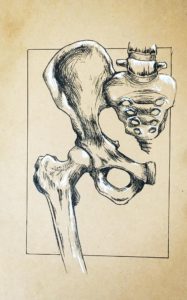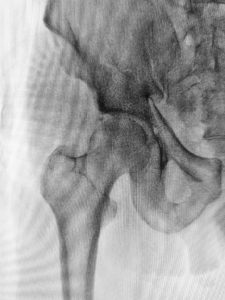Information about Hip Injuries and Fractures
 If you’ve ever had a broken bone, you know how much a fracture can hurt. The trouble with a hip injury or hip fracture is that it will be painful anytime you move. You can feel this injury when rolling over in bed, while going to the restroom, when taking a shower, and while doing nothing. These injuries can take a long time to heal as well. They can leave victims in serious pain and suffering for long periods of time.
If you’ve ever had a broken bone, you know how much a fracture can hurt. The trouble with a hip injury or hip fracture is that it will be painful anytime you move. You can feel this injury when rolling over in bed, while going to the restroom, when taking a shower, and while doing nothing. These injuries can take a long time to heal as well. They can leave victims in serious pain and suffering for long periods of time.
If you or a loved one is suffering from a hip injury, you may benefit from a skilled Seattle personal injury attorney. At Premier Law Group, we have dealt with these injuries. We know how overwhelming they can be. Call 206.285.1743 today to start your free consultation.
What is a Hip Fracture?
Hip fractures can be incredibly painful and take months to heal. They almost always impact the entire pelvic bone as well. When you have a fracture in your pelvis or hips, you may experience leaking blood into your internal organs, serious and permanent nerve damage, and internal injuries to your organs. Hip injuries also often require medical attention right away.
How Do Hip Injuries Occur?
Hip injuries can happen in a number of ways. Most commonly, they happen when the victim falls or experiences a serious physical trauma to their hips and pelvis. Some of the most common accidents that lead to hip fracture injuries include:
- Abuse, especially cases involving the elderly.
- Car accidents where the victim’s pelvis is crushed.
- Pedestrian accidents when the pedestrian is hit in the pelvis area.
- Slip and fall accidents.
- Motorcycle accidents, especially when the motorcycle rider is thrown from the motorcycle.
- Bicycle accidents, where the bicyclist was struck in the pelvis area or fell and landed on their pelvic bone.
Risk Factors for a Hip Injury
Although a hip injury can happen to anyone, certain people are at higher risk of sustaining one. Aside from motorcycle riders, pedestrians, and bicyclists, there are other major factors that relate to risk for hip injuries, such as:
- Older people have more brittle bones and other health issues, making them more susceptible to injuries.
- Medical conditions which reduce your ability to absorb calcium and vitamin D. This includes autoimmune disorders, endocrine disorders and intestinal disorders as well.
- Medications that weaken your bone structure over time. Some of these medications can also make you dizzy and prone to falling down.
- Poor nutrition. This can lead to low calcium and vitamin D and cause fatigue, resulting in you slipping, losing your balance, and being unable to recover.
- Physical fitness. People who are inactive have a higher risk of sustaining such a fracture and not being able to recover quickly.
- Tobacco use and alcohol use. These substances inhibit the body’s natural processes such as bone building and remodeling.
- Your gender. Women are much more likely to sustain a hip fracture than a man. Their bone density thins out more quickly over time.
Signs and Symptoms of a Hip Fracture
The signs and symptoms of a hip injury are not as difficult to recognize as other types of injuries. It is rare that the victim of the injury is unaware that they need medical attention. Some common symptoms are:
- Falling and not being able to get up, though your knees, back, or legs are uninjured.
- Shooting or throbbing pain throughout your pelvis and groin area.
- Being unable to put any weight down on the hip.
- Bruising and swelling through one or both hips.
- Stiffness in your hips or throughout your pelvis.
- One leg seems shorter than the other. Usually this will be the leg on the hip that you injured.
- Your leg begins to bow outward on the side where you may have been injured.
Is Surgery Necessary to Heal?
 In most cases, a hip fracture will require surgery to properly heal. The location of the injury, your age, your risk factors, as well as the seriousness of your injury will all play a role in determining which surgical method is right for you. The surgical methods are:
In most cases, a hip fracture will require surgery to properly heal. The location of the injury, your age, your risk factors, as well as the seriousness of your injury will all play a role in determining which surgical method is right for you. The surgical methods are:
- Hardware repair. A doctor may insert metal screws into your bones to bring your hip and pelvis back together for proper healing.
- Bone replacement. The doctor may cut out part of your bone and replace it to ensure that you achieve proper alignment. They may also remove damaged parts.
- Total replacement. A doctor may completely replace the upper femur and socket with prosthetics. This is common in older people or those with a pre-existing condition or damage in their joints as well.
Diagnosing a Hip Injury
Doctors diagnose a hip injury by first viewing your medical history. They will then do an exam, and take x-rays or CT scans as well. Fractures in the pelvic bone will be easy to see on a CT scan or x-ray. Doctors can then make a diagnosis and move forward with treatment. During this time, the doctor will also look for damage to nerves and to blood vessels.
Hip Fracture Complications
Hip fractures can be much more serious than other broken bones. Some individuals never fully recover. Those who become immobile as a result of a this injury are susceptible to even further injuries and complications such as:
- Bed sores. This can result from lying in bed and not moving because of the pain.
- Blood clots. These are likely to be found in the legs or in the lungs. They can lead to death if treated improperly.
- This can result from not being able to get your body fluids moving.
- Urinary tract infections. These are extremely common among the bed ridden and those living in nursing homes.
- Increased risk of having a second fracture. After the initial repair, you will become more susceptible to being injured again.
People who sustain serious hip fracture injuries also reportedly live shorter lives as a result of their injuries. It is crucial to live life safely so you will not have to worry about sustaining serious injuries while you are out living your life.
How to Avoid a Hip Fracture
Preventing a hip injury can be more difficult than it seems. Many injuries are the result of another person’s negligence. Car crashes, slip and fall accidents, and other hazards are caused by other people, and are known for causing serious injuries.
Furthermore, if you are living in a nursing home, some of the best prevention methods for your safety include:
- Wearing gripping shoes that will grab the floor even in the presence of a liquid spill.
- Watching where you’re walking and knowing that fall hazards aren’t just about slipping. Also be careful of rugs and debris from packaging, etc.
- Reporting a hazard right away so it isn’t waiting for you later.
If you’re a young person trying to avoid a hip injury:
- Be careful while riding, biking, or walking anywhere. Always be on the lookout for drivers that aren’t paying attention.
- Take precautions during recreational activities. Be sure to take safety courses for your sport or recreational activity as well. Learn how to fall in ways that protect your organs, your pelvis and other major body parts.
Contact us: Getting Help from a Seattle Hip Injury Attorney
 There are many advantages to contacting Premier Law Group. Our experienced broken bone attorneys will help protect your health, emotional well-being, and finances.
There are many advantages to contacting Premier Law Group. Our experienced broken bone attorneys will help protect your health, emotional well-being, and finances.
Additionally, we aim to ensure that everyone who contacts us is the information they need about their options. Furthermore, if you don’t need an attorney, we’ll let you know.
Contact Premier Law Group for your FREE hip injury case review. Call 206.285.1743 today. And as always, there is no legal fee unless we settle or win your case.
